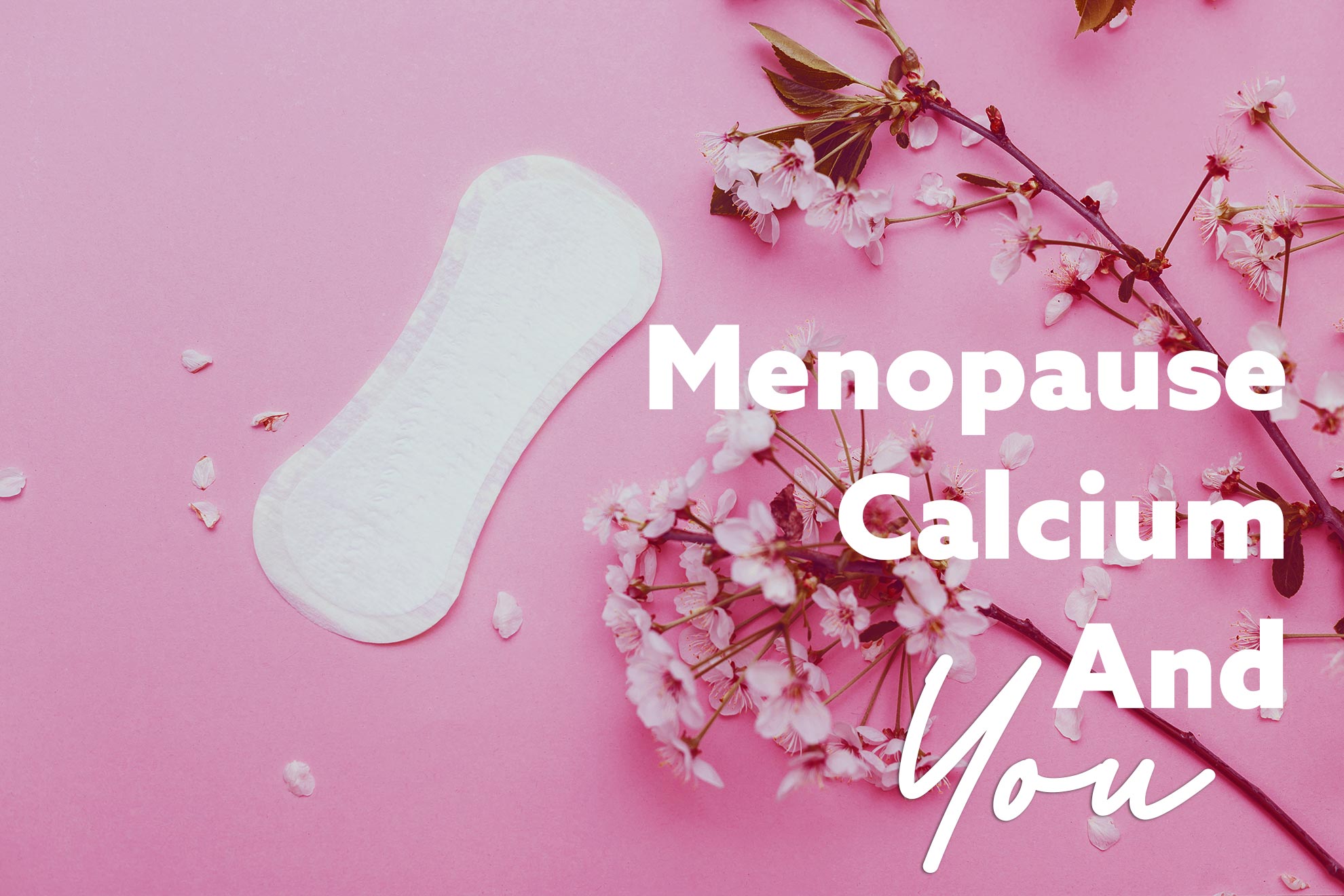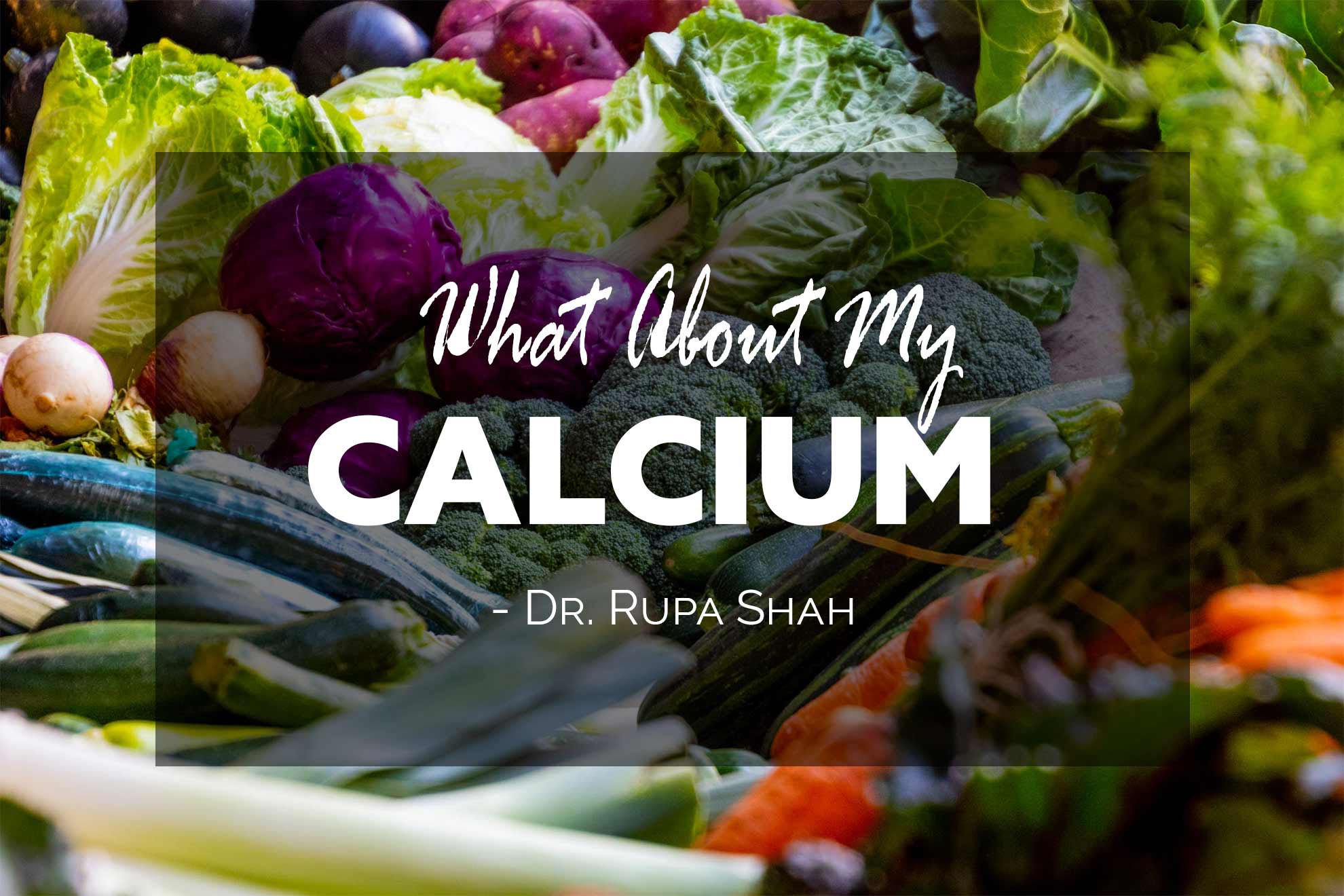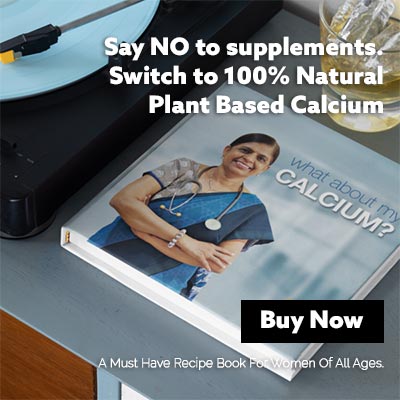
What About My Calcium?

What is Calcium and why is calcium important to the body?
Calcium is the most abundant mineral in the body. It makes up 2 % of our body weight and 99 % of our calcium is found in the bones and teeth forming a crystal with phosphorus. Calcium lends structure and rigidity to teeth and bones. It however plays another essential role, which is to serve as a chemical messenger within the cells.
In this capacity, calcium shapes and activates key proteins related to nerve transmission, heartbeat muscle, contractions, glandular, secretions and even cell division. Because of its many crucial physiological functions our blood calcium level must be maintained within a narrow range. Our skeleton is an abundant reserve of calcium. 500 milligrams a day exchange from the bone into the blood. But the question is how much calcium do we actually need?
How Much Calcium is Good Calcium?
We know how important calcium is and so how much and do we need? A lot of people always want to know that because they’ll say well, I’m taking a multivitamin. Is that enough? So here is an image of how much calcium is needed for men and women.

These are rough approximations. A lot of times, physicians will say up to 1,500 milligrams daily is fine to supplement. But what’s important here is to have an idea of how much calcium you are getting naturally in your diet. Your body does prefer the natural foods and then you need to supplement with what you may be missing. So those numbers may be different for different people. If your diet is rich in foods that have calcium, you may not need as much of a supplement, and if your diet is poor in the amount of calcium you get, you may need more of the supplement.
There is not much of a difference in the calcium intake for men and women but you cannot miss checking the age difference for men and women. Primary reason for this being that men do have higher bone density and they don’t have menopause, and so for them there is a delay in the amount of time of calcium that they need compared with women.
Why is Blood Calcium so Important?
Calcium is the most important element in our bodies and, as you will learn, because calcium is so important, we all have a control system that regulates how much calcium is in our blood and how much of it is in our bones. This control system is the parathyroid glands. First, let’s, talk about what calcium does in our body. Our bodies use calcium as the electrical system that runs the nerves and muscles. Everybody knows that calcium makes our bones hard, but that is not the most important thing that calcium does for us.
The most important thing that calcium does for us is it runs the electrical system of our body. All mammals, dogs, cats, horses, elephants, humans etc., we have an advanced nervous system that allows us to move and to think using our nervous system. All the nerves in our bodies, including our brain, was designed to use calcium as the chemical electricity.
If you think about the electrical system in your house, there are electrons that flow through the wires and the walls which powers our appliances. We don’t use electricity quite this way in our bodies else we would all be sparking and catching a fire if we did. Instead, we use calcium to flow along the nerves as a way to conduct a chemical electricity.
Calcium runs the electrical system of our bodies. We all know that the electricity in our homes is kept at a very constant level at all times by the power company. We don’t, have 150 volts coming out of the walls on Monday and 190 volts coming out on Tuesday. Because if we did, our light bulbs would burn out earlier. Our appliances will wear out much faster. Just as the power company controls how much electricity is flowing through the wires in our house, our bodies have a control system that regulates how much calcium is in our blood and how much calcium is in our nervous system.
As mentioned before, the control system for calcium in our bodies is the parathyroid glands. The job of the parathyroid is to control the calcium in our bodies and in a very small normal range. These four little glands are supposed to make sure that calcium never goes too low or too high. The parathyroid glands in our bodies regulates the chemical energy just like the power company regulates the electrical energy in our homes. Of all the elements in our bodies, sodium potassium chloride, phosphorus magnesium, zinc and all the others, only one element in our bodies has a control system and that’s Calcium.
No other element has a control system and no other element is regulated in such a small, normal range. In fact, the control of calcium is so important to our health that it is quadruple redundant. That is, we all have four parathyroid glands all doing the same thing. Just as NASA or ISRO has a backup system for most important parts of their space shuttle, similarly our bodies are designed with a backup system for the control of calcium. We all have four parathyroid glands. Quadruple redundancy does not exist anywhere else.
In our bodies we have one liver, one thyroid, one stomach. We have two kidneys, two ovaries, two eyes, two ears, but we have four parathyroid glands all doing the same thing. And almost always they do a fantastic job of regulating our calcium. Because these glands do such a good job, almost everyone reading this article may never have heard of a parathyroid gland. The reason being that the parathyroid glands work fantastic for our entire lives and so go unnoticed, and for almost all people, the glands don’t go bad very often. But when the glands do go bad, we can suffer the consequences in many different parts of our bodies.
When parathyroid glands go bad, it is typically because one of them went crazy and developed a tumor. This out-of-control tumor is like a power plant with a meltdown. It means there’s too much calcium in our blood, and this increase in calcium can have a tremendous effect on our nervous system. How much energy we have? How tired we feel? How well we sleep? How our heart beats and many other issues. We use calcium as the chemical energy of our bodies.
Sure, calcium makes our bones hard, but it’s a well-regulated blood calcium that makes us feel good and enjoy life.
Causes & Symptoms of Calcium Deficiency
In this section we are going to talk about calcium deficiency. So many people have too much calcium and so it is locking up the soft tissues and creating all sorts of issues.
If you are having calcium deficiency then these are the symptoms. One of the first symptoms of calcium deficiency is insomnia, specifically early-morning insomnia. Let’s say you get up an hour before the alarm clock, boom, you need some calcium. So, calcium will allow you to go a little bit longer and that’s, because calcium is needed to make tryptophan to make melatonin. For those you who don’t know what tryptophan is; Tryptophan is an essential amino acid that serves several important purposes, like nitrogen balance in adults and growth in infants.
So, it’s not just about calcium in the muscle itself relaxing you, it’s also about your hormones. Muscle cramps is another common symptom of calcium deficiency. Its recommended to take calcium lactate or calcium citrate. Next symptoms are brittle nails, tooth decay, bone loss and red purple spots. Red purple spots could be really small or they can be bigger. Why? Because calcium is involved in the clotting of blood, just like vitamin K is.
Another calcium deficiency symptom is tetany. Tetany is a disorder of increased neuronal excitability and is usually associated with hypocalcaemia. You are alkaline and you are not able to transport the calcium and it becomes unavailable to you. So, you get these little twitches in different parts of your body and it is called tetany. There are more calcium deficiency symptoms, but these are the main ones. Pins and needles around the mouth and the lips or on your hands and your feet is another symptom of calcium deficiency, which could also be a diabetic symptom as well.
Now what are the causes or calcium deficiency?
Hyperparathyroidism: Don’t mistake it for hypothyroidism. Its the parathyroid. It’s the four little glands behind the thyroid. They are really tiny and like the size of a seed of a rice, a grain of rice and when it’s low, it can actually affect the calcium. When it’s high, it raises calcium and it would steal it from the bone.
Kidney Damage: A damaged kidney can cause a calcium deficiency.
Calcium Channel Blockers: That’s what you would take if you have high blood sure, because that blocks calcium.
Anti-acids: They dry up all the acid in your stomach giving you low stomach acids. You need a really acidic stomach to absorb minerals, specifically calcium.
Vomiting or Diarrhea: Vomiting or diarrhea can cause calcium deficiency because you are losing fluids.
Excessive Magnesium: So, let’s say you are taking a remedy or medicine which is high in magnesium but you are not adding the calcium in there. That can create an imbalance because calcium and magnesium work together.
Low vitamin D: Let’s say, for example, Vitamin-D is not in your diet or you are not getting the sun light or your gallbladder is missing or you don’t have enough bile, because your gall bladder is congested then you can’t absorb the fat type of vitamins.
Low Stomach Acids: It is another common reason why someone becomes deficient in calcium.
Alkalosis: Which basically is pH of your blood. It’s just overly too alkaline and that can come from adrenal stress and high cortisol.
So that brings us to the question what are best foods for calcium?
The best foods for calcium would be from greens, leafy greens, spinach, bok choy, kale, nuts, seeds are loaded with calcium and it’s, a lot of other foods as well.
If you are going to take a supplement, then go for the calcium lactate. If you can’t find that then go with calcium citrate, but do not go for the calcium carbonate. Calcium carbonate is like chewing on cement. It’s just not going to be absorbed too well by the body. It’s like chewing on rocks, all right?
Calcium and its relation with human body is a vast subject. What we have covered here is just a tip of it.
For more insights and to know how you can maintain you body’s need for calcium, you can check out this book WHAT ABOUT MY CALCIUM by Dr. Rupa Shah.
For more remedies and videos check out our channel Healin’ Temple
For any queries regarding how to fulfill your body’s Calcium requirements, you can reach Dr. Rupa Shah here.
Share:

Healin' Temple
The Healin Temple is a health and wellness center managed by Dr. Atul Shah & Dr. Rupa Shah where Modern Science meets Ancient Wisdom. Each one of our pathways is specifically designed to support your body holistically and promote natural healing.
Social Media
Most Popular


Importance of Calcium During Pregnancy & The 5 Simple Guidelines

What About My Calcium?

What is Vitamin D? Are You Getting Enough?
Subscribe To Our Weekly Newsletter
Connect With Us
[elfsight_facebook_feed id=”1″]
Related Posts

Menopause, Calcium And You
Today we will be talking on menopause, and we will be discussing the role of calcium in the menopause. Now, when most of us think

Importance of Calcium During Pregnancy & The 5 Simple Guidelines
Calcium is an important nutrient during pregnancy, and if you’re not getting enough from your diet, you may need a supplement. Here we’ll discuss calcium

What About My Calcium?
What is Calcium and why is calcium important to the body? Calcium is the most abundant mineral in the body. It makes up 2 %

What is Vitamin D? Are You Getting Enough?
Vitamin D is a nutrient that our own body produces! It’s called the sunshine vitamin for a reason. Our body synthesizes Vitamin D from sun


